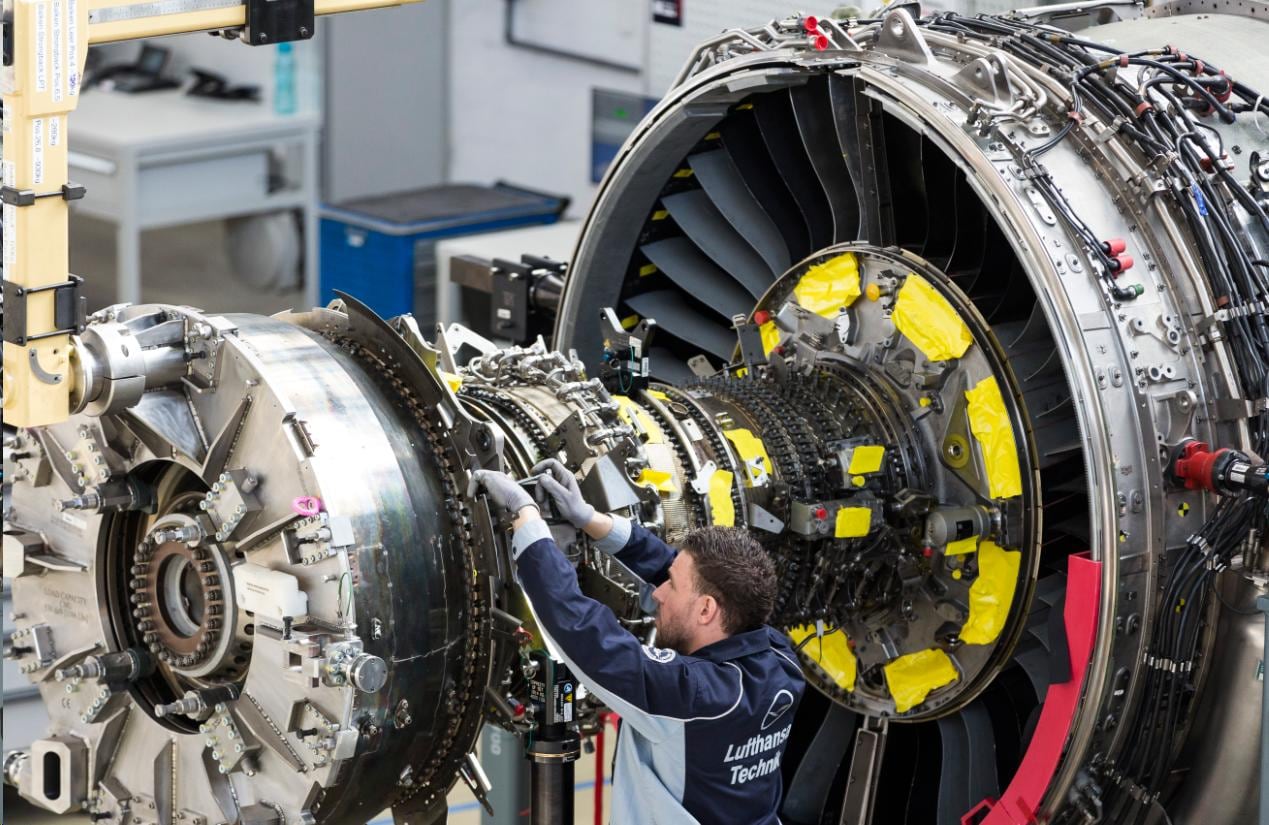Ottawa is pledging more on defence — and Calgary wants a piece of the action

While Calgary is best known as an oil and gas town, a growing aerospace and defence industry has largely flown under the radar.
Right now, the city has 158 companies operating in the aerospace and defence sector, according to Calgary Economic Development. The industry across the entire province contributed $3.1 billion in gross domestic product in 2024, the agency said.
“There's a tremendous amount of defence and aerospace activities happening that most people are not even aware of,” said Jeff LaFrenz, president of VizWorX, a tech company whose software includes a virtual reality platform that can let soldiers hold battlefield meetings while safe inside their armoured vehicles.
LaFrenz said the energy industry tends to "dominate a lot of the discourse," which can drown out developments in the aerospace field.
That could be changing.
This week, Boeing, Ottawa and Calgary Economic Development announced funding for a new initiative in Calgary to fast-track the commercialization of Canadian-made defence technologies and to help local companies find new clients in the sector.
The company has to spend a certain amount of money on Canadian aerospace and defence as part of a contract signed with Ottawa, to replace the country’s aging maritime patrol aircraft. This is the latest in a string of announcements across Canada and is expected to be just the first of the company’s “Alberta-focused announcements,” a Boeing spokesperson said.
Wave of aviation announcements
This comes in a year when the city has also seen a slew of announcements on the commercial aviation side. Calgary has long been the headquarters of WestJet, the country’s second-largest airline, which this year put in its largest-ever aircraft order.
Also this year, Lufthansa Technik announced a multi-billion dollar agreement to build an aircraft maintenance facility at the Calgary airport, and Canadian Aviation Electronics (CAE) announced it would build a 126,000 square foot aviation training facility in the city.
Meanwhile, De Havilland Canada plans to break ground in the spring on a 1,500 acre aircraft manufacturing facility 30 minutes east of the city that’s expected to become the company’s new head office.

Nicole Holinaty, a director with Calgary aircraft maintenance company HeavyAero, said there’s plenty of overlap between the commercial and defence sides of the aerospace industry.
“An airplane engine is an airplane engine,” said Holinaty.
Holinaty said the company has recently started to “enter the defence realm” but that an ongoing challenge is the red tape associated with becoming a defence contractor. She hopes the Boeing commercialization initiative will help them broaden their network.
“There's a lot of hurdles that exist in terms of getting your innovation into the defence market,” she said.
It’s hoped the initiative could also bridge the gap between different industries. An oil and water separator used in the energy sector could be repurposed for shipbuilding, for example, or a radar system used in defence could be used in mining, according to Kimberley Van Vliet, whose organization "ConvergX" will run the commercialization program.
People a barrierBut if the city wants to become a greater player in the industry, one hurdle could be human resources. De Havilland Canada, for example, employs about 500 engineers across the company and many are nearing retirement age, said vice-president Neil Sweeney.
“That’s the only thing that can really hold back the sector … not only in Alberta but in Canada,” he said.

The bulk of aerospace manufacturing employment in this country is in Quebec, followed by Ontario and Western Canada, according to a report from Innovation, Science and Economic Development Canada. Aerospace maintenance, repair and overhaul is more common in Western Canada, the report said, though it didn’t specify a particular province.
Montreal is the country’s aerospace hub (and the third-largest in the world, after Seattle and Toulouse).
Aviation expert John Gradek said that while Calgary is still a ways from competing with Montreal, for example, he believes the city is moving up the ranks in the country.
But without more dedicated post-secondary training to churn out a new cohort of aerospace workers, he said it will be difficult to see the sector grow.
“There's no shortage of opportunities,” said Gradek, a lecturer in supply networks and aviation at McGill University. “There is a shortage of talent.”
Still, with Ottawa pledging to spend more money on defence — and to prioritize Canadian domestic industrial benefits — there’s optimism that the sector as a whole will grow, and that Calgary (and Alberta) will get a greater share of the pie.
“We have an opportunity as a province to really come together around aerospace and defence,” said LaFrenz, with the tech company VizWorX. “I think we can rival any location in the world if we choose to do so.”
cbc.ca





